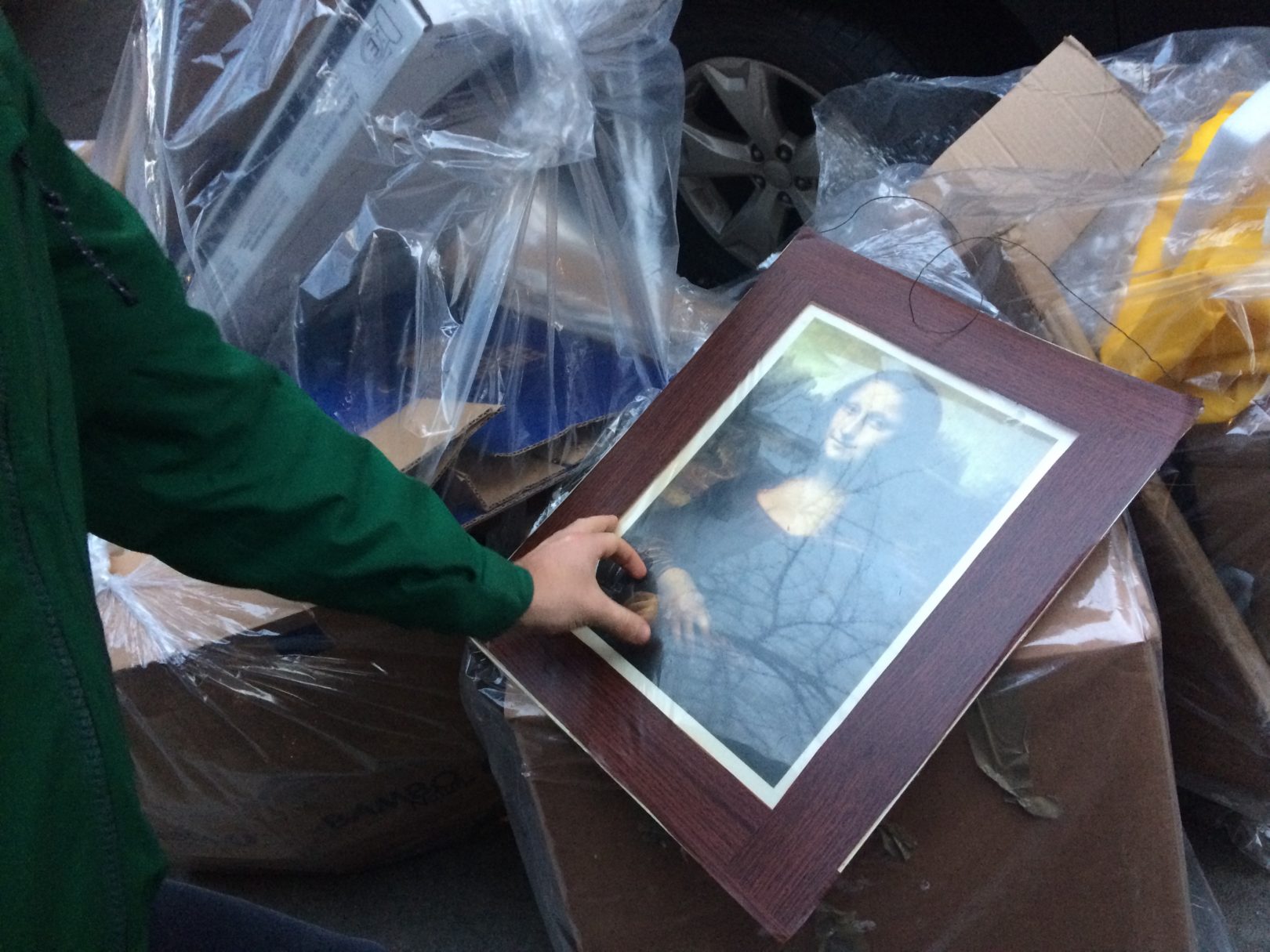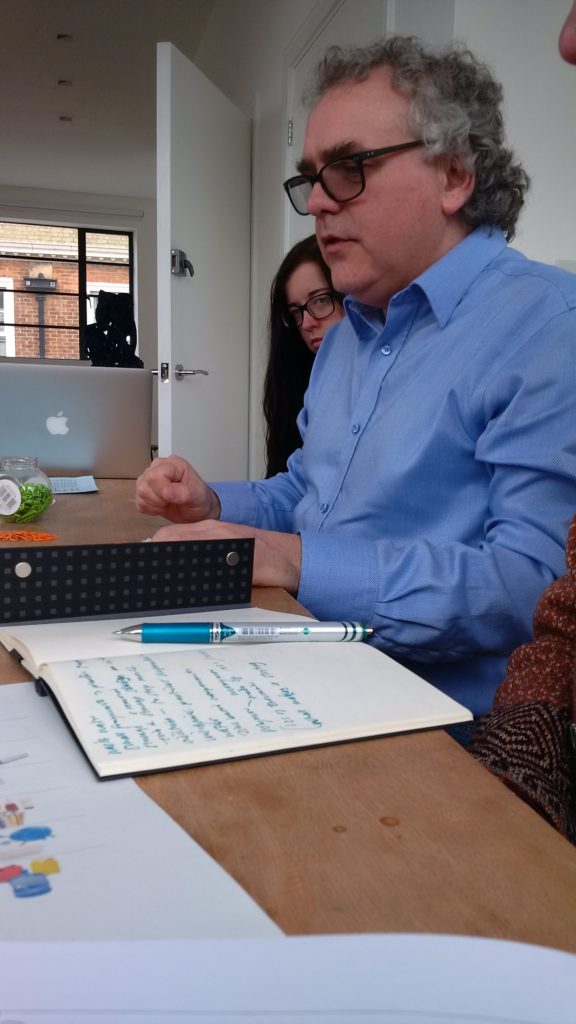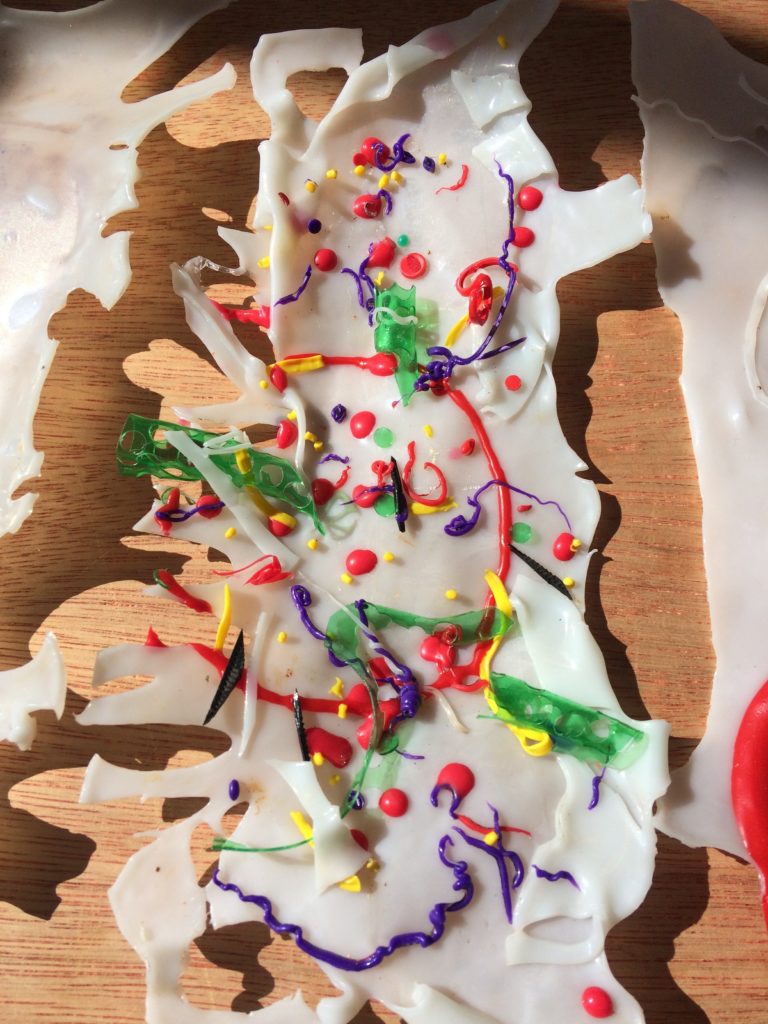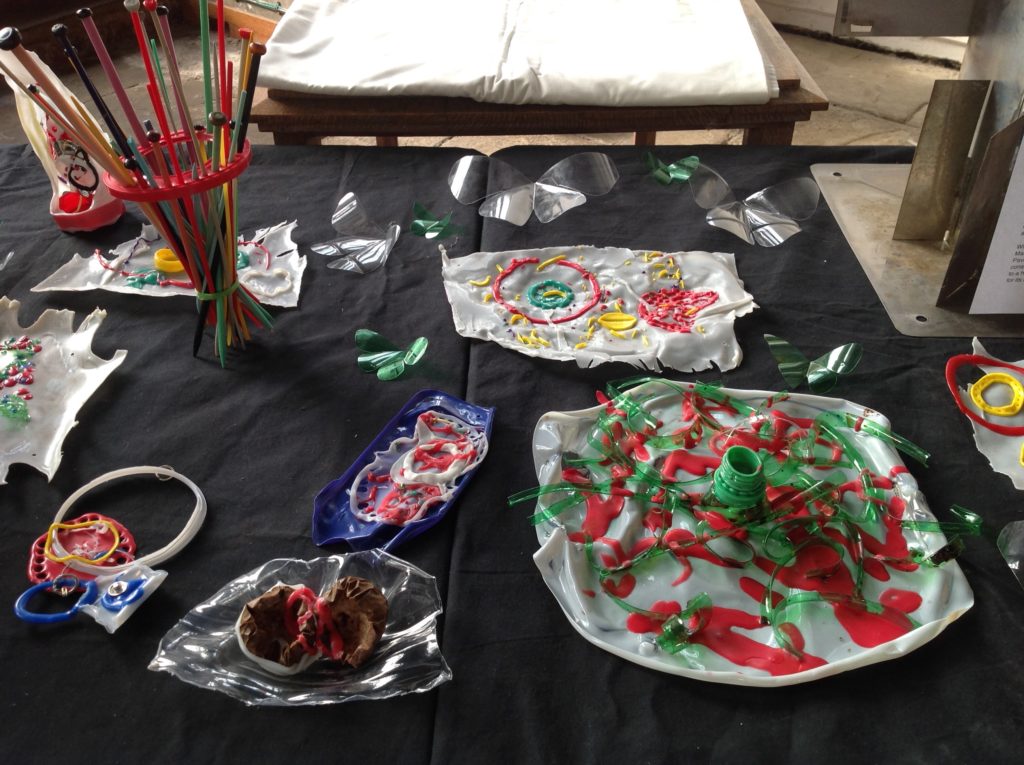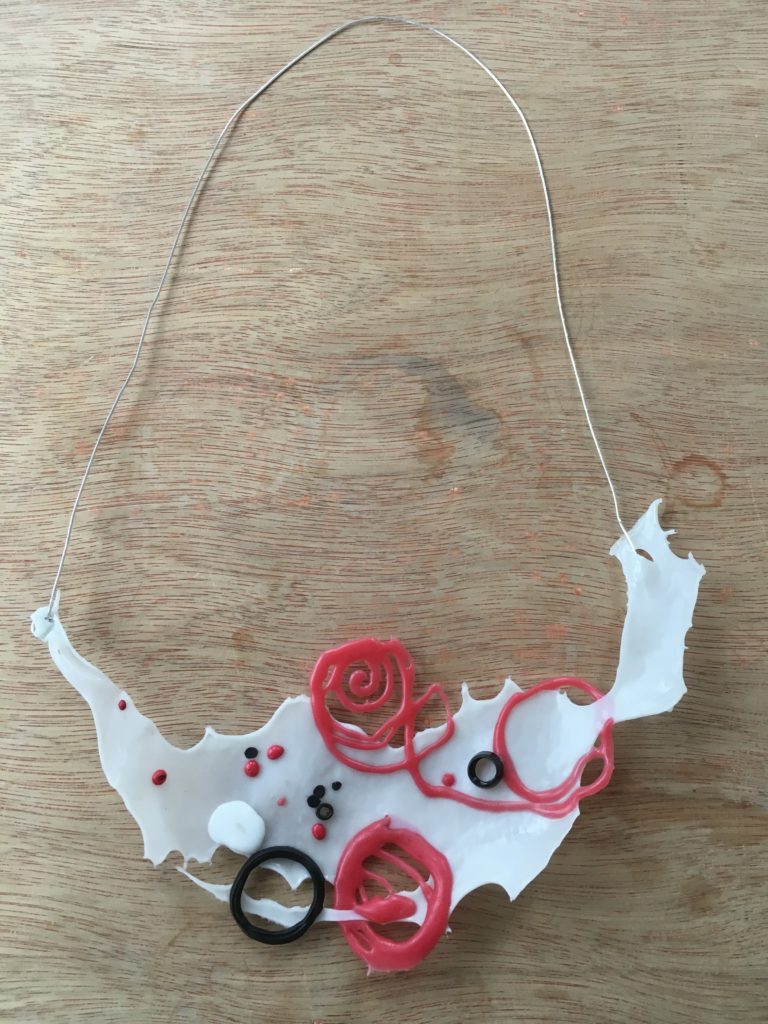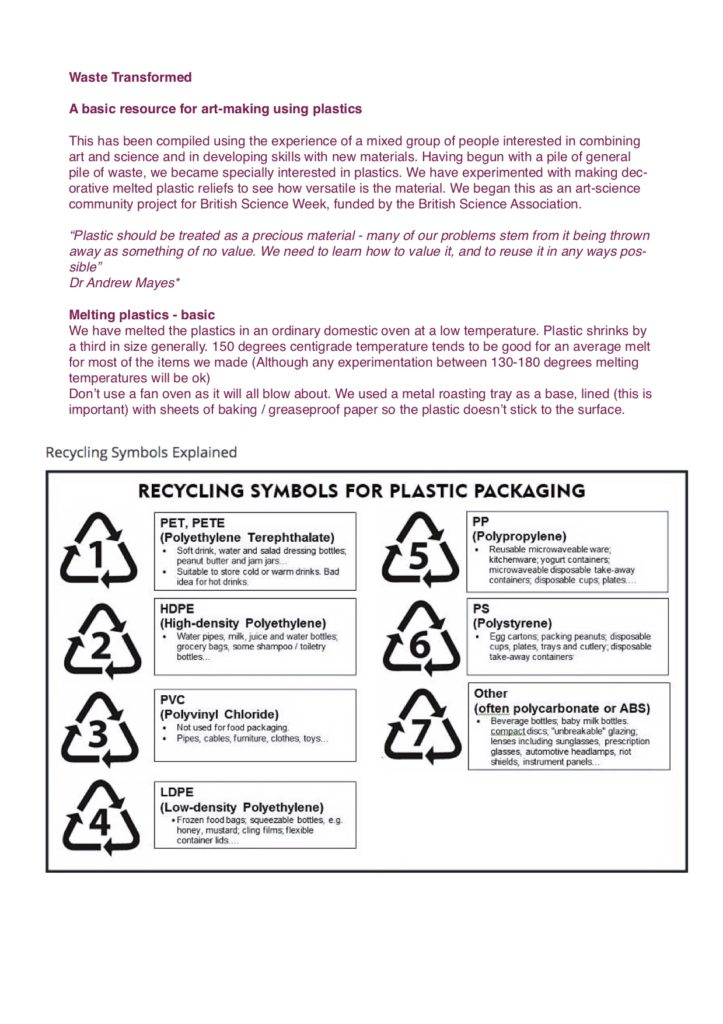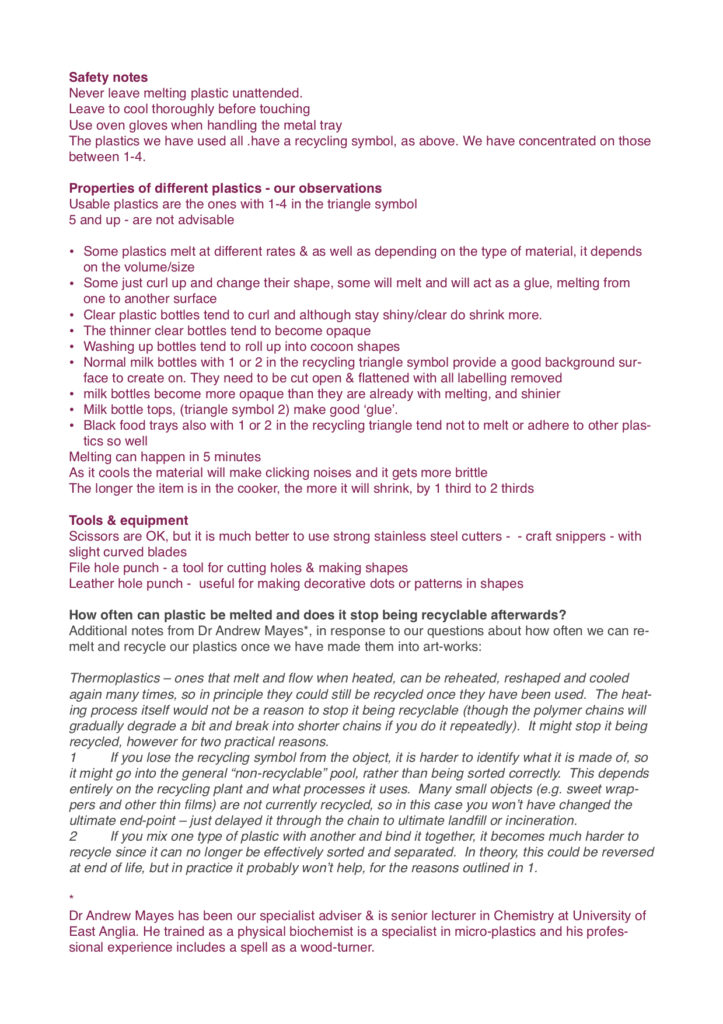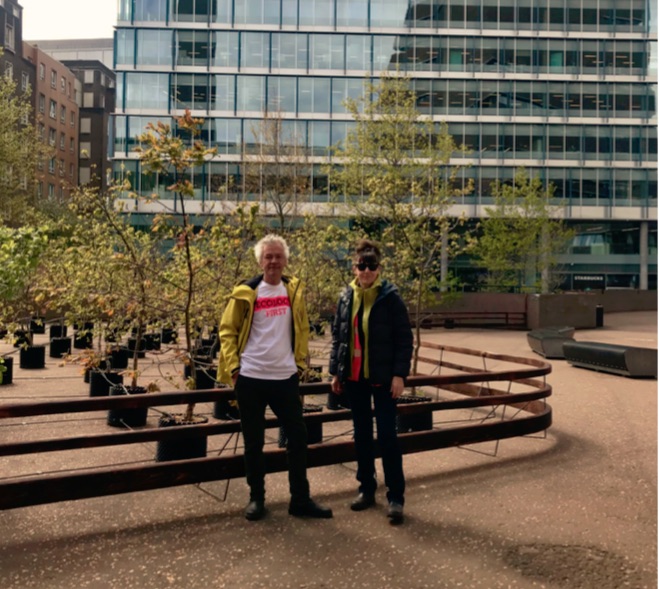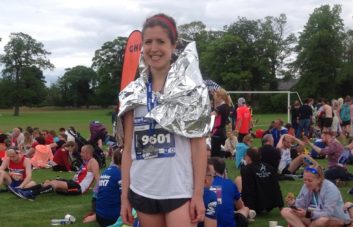Waste Transformed is a project about making art from trash. Initially we were inspired by Jan Eric Visser’s work for our Trash Art exhibition in 2018 to explore creative reuse of materials. We then went on to investigate plastics and that became a bit of an obsession. This project is an example of how exhibitions at GroundWork stimulate discussion and action. This can involve artists, creators, community leaders, scientists, campaigners, and local people. Anyone can join in. Activating our exhibition subjects is our thing. We do this by hosting regular projects in the gallery to explore the themes of our exhibitions. Sign up to our email list to be the first to know about events at GroundWork.
Waste Transformed
Our first waste explorations were inspired by the work of Jan Eric Visser as part of TrashArt in 2018. Our aim was to consider waste’s potential for becoming something more creative, useful, beautiful, quirky, thought-provoking, practical.
This began as a project funded by the British Science Association for Science Week https://www.britishscienceweek.org/ . We have continued regularly ever since then.
Jan Eric Visser in King’s Lynn
Jan Eric Visser began his relationship with King’s Lynn by exploring its trash. In 2017 he took a walk along the banks of the River Great Ouse and collected 11 items of trash. He subsequently turned these into art – on show as part of TrashArt, until June 2, 2018 .
Then a group of about 8 participants, members of an organisation for sufferers of domestic abuse called 4Transform, joined in a project inspired by Jan Eric’s work.
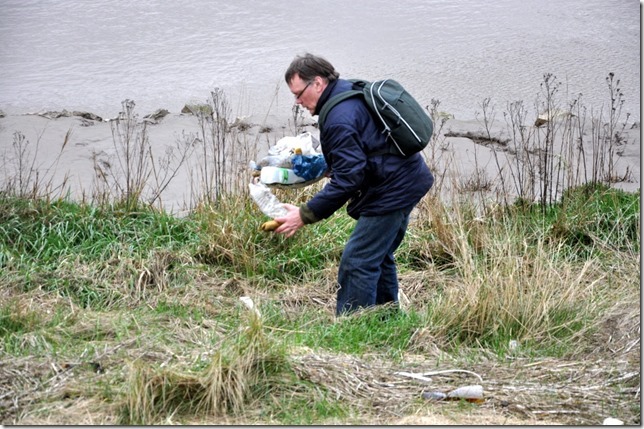
We spent a day collecting trash along the river Great Ouse, just as he had done. Once we had returned to the gallery with our bounty, we discussed with him how we might transform it.
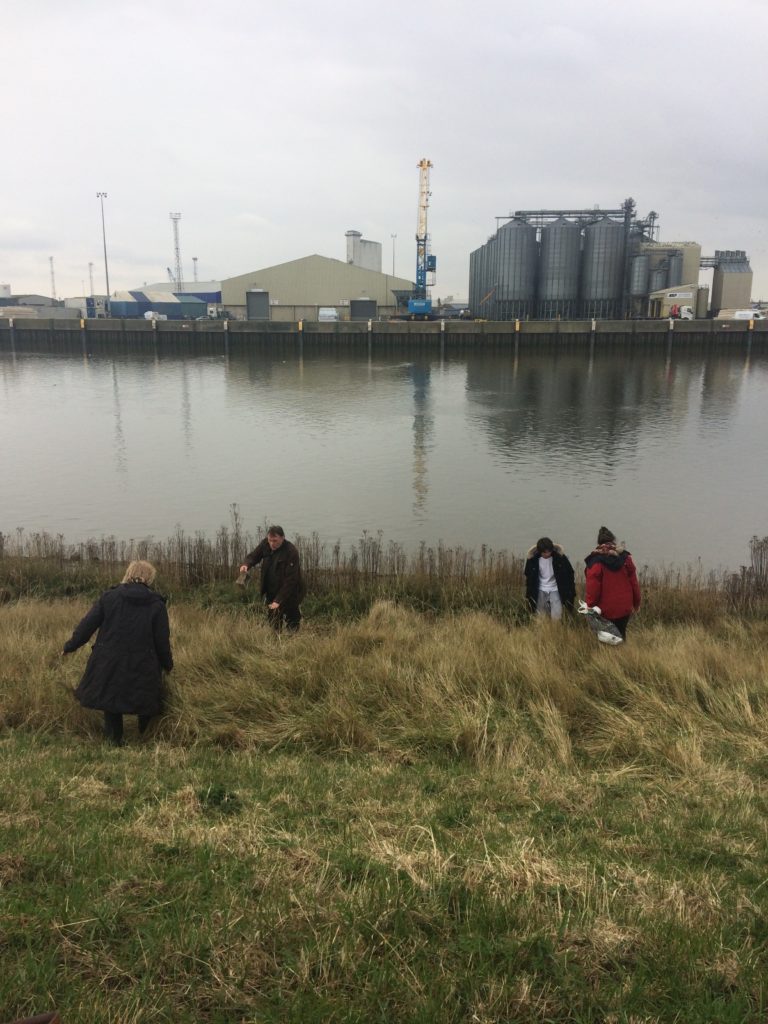
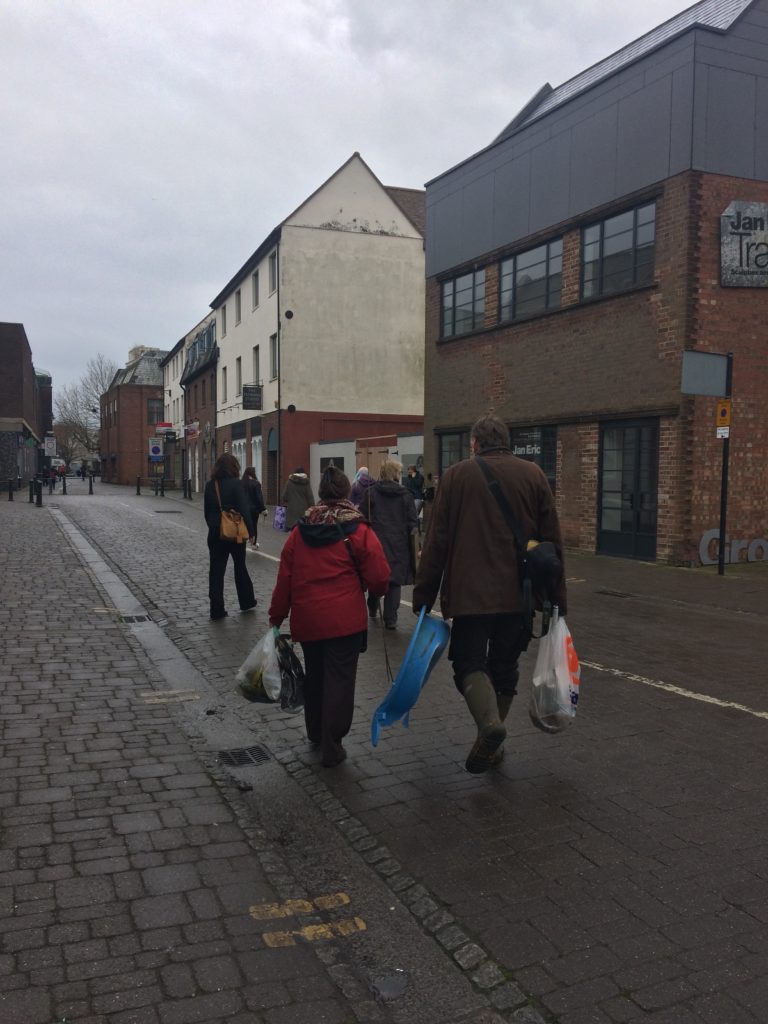
Project Outline
Waste Transformed began during Science Week, 2018, involving 4Transform a charity for sufferers of domestic abuse. The idea was to transform waste into a new life, as a creative resource. As Jan Eric Visser says:
‘I engage in a transformation of matter so that I can transform myself’
Jan Eric Visser
This was very meaningful for 4Transform. They thought of the process of making art from waste in a similar way, to aid their own mental transformation. For them, the project paralleled their own transition from past stress to a new state of calm.
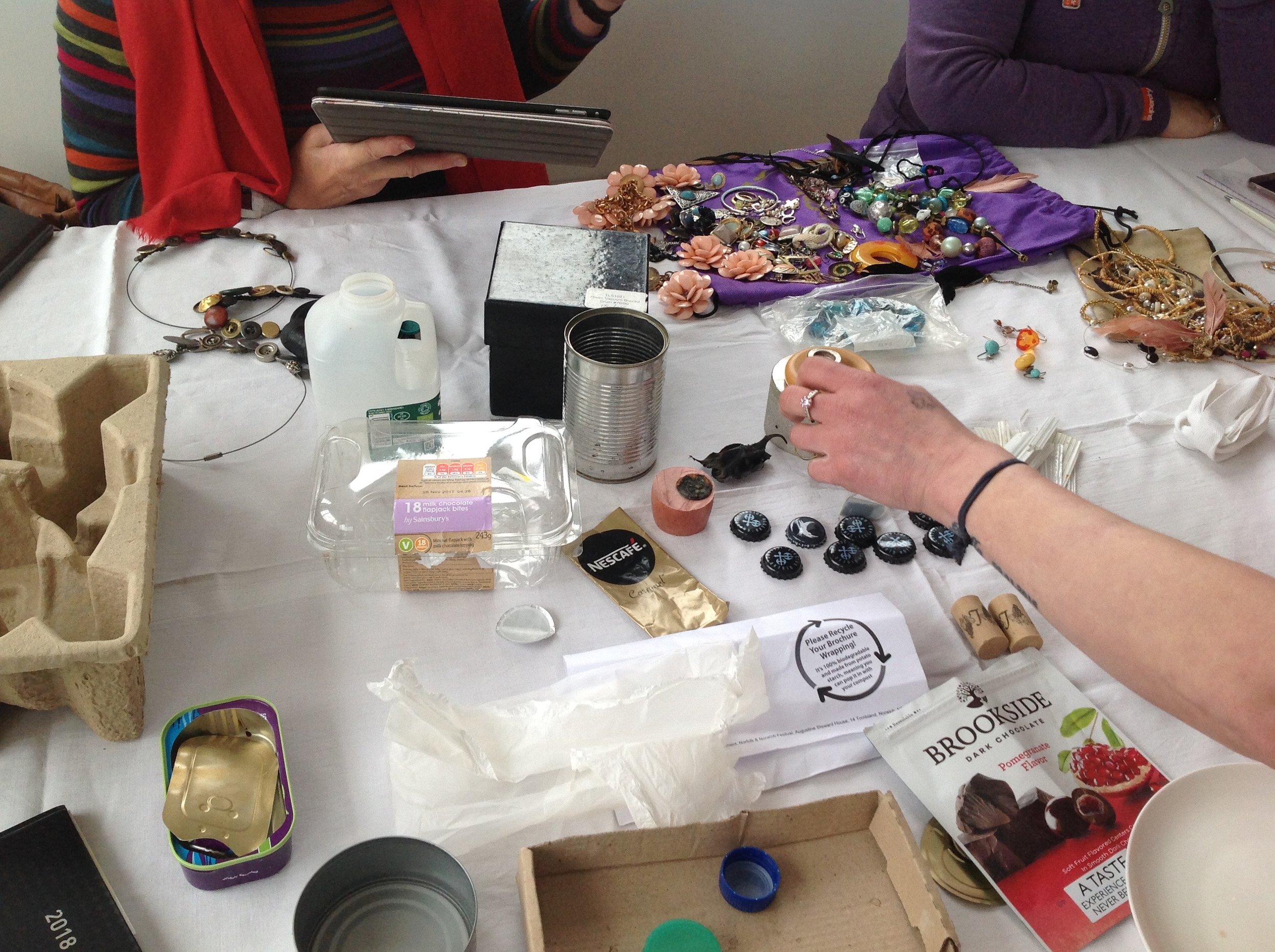
Experiments with plastics
We became increasingly interested in plastics. The world now is well aware of the problems of casual wastage of plastic. Thanks to widespread publicity via David Attenborough’s Blue Planet films, we learned how it ends up in the oceans. A big problem is the widespread inclusion of micro plastics in all kinds of household items. In order to learn more, we consulted with Andrew Mayes, a materials chemist from University of East Anglia. His, line is very much that we must reuse plastic. We were very inspired by him and spent a lot of time discussing and trying different ways to reuse plastic.
Dr Andrew Mayes became our specialist adviser & is senior lecturer in Chemistry at University of East Anglia. He trained as a physical biochemist is a specialist in micro-plastics. His professional experience also includes a spell as a wood-turner.
“My research revolves around designing custom polymers and materials and applying them to address problems in chemical analysis and drug delivery. I have also become increasingly focused on environmental analytical problems and in particular the detection of microplastics in a wide variety of samples.”
Andrew Mayes
Andrew Mayes taught us that there are many kinds of plastics with different properties. Furthermore, we have choices about which ones we use. So, for this project we argued the case for valuing plastic as a precious resource. Below is a snippet of film showing Andrew talking to us about plastic and its properties. We made it for documentary purposes so the filming quality isn’t great, but what he says is very relevant.
We also wrote a resource about art-making with plastic, as a result of our experiments.
Waste Transformed: A basic resource for art-making using plastics
“Plastic should be treated as a precious material – many of our problems stem from it being thrown away as something of no value. We need to learn how to value it, and to reuse it in any ways possible” *
Dr Andrew Mayes
The project culminated with an exhibition on 21 April, Earth Day, organised by the KLimate Concern group in King’s Lynn.
Funded by the British Science Association, for British Science Week, 9-18 March 2018
About 4Transform
This is a group run by and for survivors of domestic abuse and we are committed to supporting anyone affected by domestic abuse, using creativity to improve your wellbeing.
“ what’s special about Creativity is using the combination of supporting people by building relationships around making things like you never knew you could “ (said by a group member)
Trash art and recycling
Also all about recycling – these films were made by James Murray White during a Trash Art study day
Repair cafes and CirculART, in and around Cambridge
As part of the Jan Eric Visser exhibition season, on April 28 2018, we held an event about the politics of trash art. Two of the many inspiring speakers from that day, Nicole Barton and Jenny Langley talked about some of the initiatives to work with recycling. They discussed all kinds of remaking and repairing stuff – and exhibiting art-works from recycled materials. This film by James Murray-White recorded their talks.
Another contribution on the day of talks about the art and politics of trash was David Ousby who talked about wood recycling. Here he is talking about his programme in Cambridge

